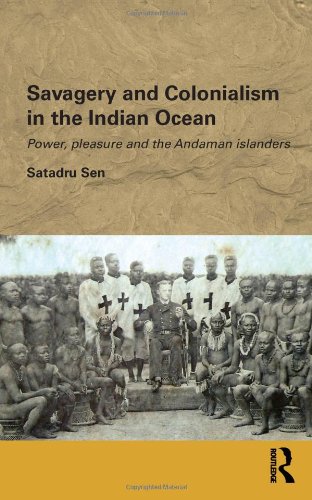

Most ebook files are in PDF format, so you can easily read them using various software such as Foxit Reader or directly on the Google Chrome browser.
Some ebook files are released by publishers in other formats such as .awz, .mobi, .epub, .fb2, etc. You may need to install specific software to read these formats on mobile/PC, such as Calibre.
Please read the tutorial at this link: https://ebookbell.com/faq
We offer FREE conversion to the popular formats you request; however, this may take some time. Therefore, right after payment, please email us, and we will try to provide the service as quickly as possible.
For some exceptional file formats or broken links (if any), please refrain from opening any disputes. Instead, email us first, and we will try to assist within a maximum of 6 hours.
EbookBell Team

0.0
0 reviewsThis book examines the social, political and ideological dimensions of the encounter between the indigenous inhabitants of the Andaman islands, British colonizers and Indian settlers in the eighteenth and nineteenth centuries. The British-Indian penal settlements in the Andaman Islands – beginning tentatively in 1789 and renewed on a larger scale in 1858 – represent an extensive, complex experiment in the management of populations through colonial discourses of race, criminality, civilization, and savagery. Focussing on the ubiquitous characterization of the Andaman islanders as ‘savages’, this study explores the particular relationship between savagery and the practice of colonialism.
Satadru Sen examines savagery and the savage as dynamic components of colonialism in South Asia: not intellectual abstractions with clear and fixed meanings, but politically ‘alive’ and fiercely contested products of the colony. Illuminating and historicizing the processes by which the discourse of savagery goes through multiple and fundamental shifts between the late eighteenth and late nineteenth centuries, he shows the links and breaks between these shifts and changing ideas of race, adulthood and masculinity in the Andamans, British India, Britain and in the wider empire. He also highlights the implications of these changes for the ‘savages’ themselves. At the broadest level, this book re-examines the relationship between the modern and the primitive in a colonial world.